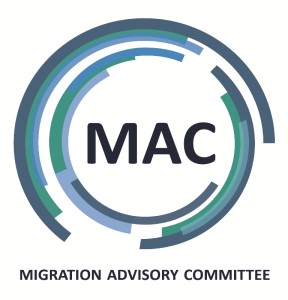Letter from Professor Brian Bell to the Home Secretary, 10 June 2025 (accessible)
Updated 12 August 2025
Migration Advisory Committee
2nd Floor Peel Building NE
2 Marsham Street
London
SW1P 4DF
Rt Hon Yvette Cooper MP Home Secretary
2 Marsham Street
London
SW1P 4DF
10 June 2025
Dear Home Secretary,
I am pleased to inform you that we have published our review of the Family visa financial requirements responding to your commissioning letter of 10 September 2024. A copy of our report has been provided to your office.
You asked us to advise on the financial requirements, including setting a Minimum Income Requirement (MIR) for the family migration route in a way that balances the economic wellbeing of the UK with the right to family life. This task does not have a simple technical answer and involves weighing complex social, ethical, and fiscal trade-offs. While we do not prescribe the relative importance of these values, we have considered the various trade-offs and use this to highlight the key factors the government should consider.
MIR threshold
We present four options to set the MIR, namely standard of living, benefits, fiscal, and average earnings.
Whilst a lower threshold would favour family life and possibly entail a higher net fiscal cost to the taxpayer, a higher threshold would favour economic wellbeing, with possibly a higher number of families experiencing negative impacts. When considering measures that focus on the family’s ability to support itself financially, we suggest that reasonable measures fall in the range of £19,000 to £28,000 for the sponsor alone. A number of such measures based on different approaches, including working full-time at the National Living Wage, fall in the range £23,000 to £25,000.
We also consider measures that will influence the impact of partner migration on public finances or average income. It is difficult to see how to do this in a coherent way by only testing the sponsor’s income. Ultimately a higher threshold would be focused on reducing net migration and likely lowering any overall fiscal cost – we are unclear as to whether such an approach is consistent with Article 8.
Our analysis and research show that the MIR can have significant negative impacts on families. The impacts on British children separated from one of their parents are particularly concerning. We encourage the Home Office to review current policy to ensure that separation of children from parents is minimized where possible.
Other recommendations
We make various technical suggestions including allowing consideration of the main applicant’s income from the initial entry clearance stage, given how important the non-UK applicant’s earnings are to their impact on economic wellbeing. We also highlight flaws in the current adequate maintenance test and discuss alternative approaches to assessing applications in this space. This includes an option of having no financial test for qualifying individuals but retaining the existing adequate accommodation requirement.
There is a lack of consistent data collected by the Home Office which would enable analysis of how the Family visa is working. We make recommendations setting out how data collection could be improved, to allow for effective evaluation.
On behalf of the Migration Advisory Committee,
Yours sincerely,
Professor Brian Bell, Chair, Migration Advisory Committee
cc:
Seema Malhotra MP, Minister for Migration and Citizenship
Antonia Romeo, Permanent Secretary
Simon Ridley, Second Permanent Secretary
Daniel Hobbs, Director General Migration and Borders Group

